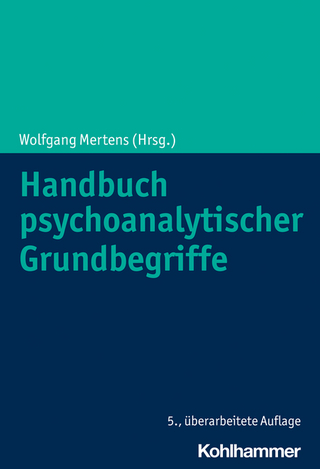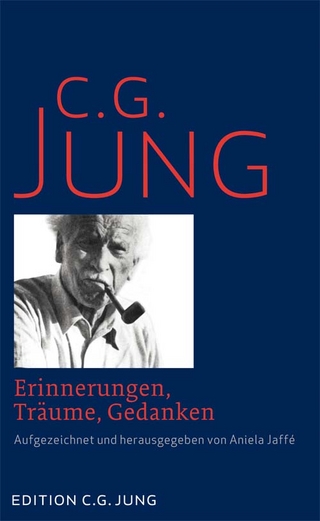
Intimate Revolt
Columbia University Press (Verlag)
978-0-231-21677-7 (ISBN)
- Noch nicht erschienen
- Portofrei ab CHF 40
- Auch auf Rechnung
- Artikel merken
Julia Kristeva, herself a product of the famous May '68 Paris student uprising, has long been fascinated by the concept of rebellion and revolution. Psychoanalysts believe that rebellion guarantees our independence and creative capacities, but is revolution still possible? Confronted with the culture of entertainment, can we build and nurture a culture of revolt, in the etymological and Proustian sense of the word: an unveiling, a return, a displacement, a reconstruction of the past, of memory, of meaning? In the first part of the book, Kristeva examines the manner in which three of the most unsettling modern writers—Aragon, Sartre, and Barthes—affirm their personal rebellion.
In the second part of the book, Kristeva ponders the future of rebellion. She maintains that the "new world order" is not favorable to revolt. "What can we revolt against if power is vacant and values corrupt?" she asks. Not only is political revolt mired in compromise among parties whose differences are less and less obvious, but an essential component of European culture—a culture of doubt and criticism—is losing its moral and aesthetic impact.
Julia Kristeva is professor emerita of linguistics at the Université de Paris VII. A renowned psychoanalyst, philosopher, and linguist, she has written dozens of books spanning semiotics, political theory, literary criticism, gender and sex, and cultural critique, as well as several novels and autobiographical works, published in English translation by Columbia University Press. Kristeva was the inaugural recipient of the Holberg International Memorial Prize in 2004 “for innovative explorations of questions on the intersection of language, culture, and literature.”
Chapter 1. What Revolt Today?
The Dignity of Revolt (The Novel)
Man in Revolt (Retrospective Return)
Revolt as Jouissance and Dispersion (Psychoanalysis)
Negativity in Revolt (Philosophy and...Freud)
Paradoxical Logics (Resistances to Psychoanalysis)
Intimacy in Revolt (The Imaginary)
Chapter 2. Can Forgiveness Heal?
The Trilogy of Evil
Donation or Sadness
The Consciousness of Fault (Heidegger and Freud)
Against Guilt: Rebirth
The Poiesis of Interpretation
Depression at the Edge of Words (the Story of Anne)
Chapter 3. The Scandal of the Timeless
Psychoanalysis is not Intersubjectivity
The Subversion of Temporality
The Freudian Scandal
Three Figures of the Analytical Timeless: 1. The Memory-Trace (Erinnerungsspur or Errinnerungrest), Working-through (Durcharbeitung), The Dissolution of Transference-Homo natura and Homo analyticus
Chapter 4. The Intimate: from Sense to the Sensible (Logics, Jouissance, Style)
Once more, On the Soul (organic, animal, general)
Images, loquela, Jouissance (Augustine, Loyola, Sade)
Psychical Life as Jouissance
Science and Experience: Counter-transference
The Taste for the Singular Life (Style)
Plato's Cave Hides a Sensory Cave
The "Second Dwelling" (Proust's Dream)
Writing, Therapy, Beauty
Between word-signs and word fetishes: Interpretation
Chapter 5. Fantasy and Cinema
Organisms of Mixed Race (Didier, the Collages Man)
Fear and Spectacular Seduction
Fantasy and the Imaginary: The Specular
The Representable Conflict
Cinema and Evil
Chapter 6. Barthes: The Savor of Disenchantment
Iconoclasm
A Position: Writing Against
Modern Man in all his States: Vices and Affections
Myth: A Type of Speech Chosen by History
Chapter 7. Barthes: Constructor of Language, Constructor of the Sensory
The Spiritual Exercises of Loyola
Who is the Subject of this Polyphony?
Images
The loquela
Indifference and Suspension
Chapter 8. Barthes: The Intractable Lover
Figures
The Jardin du Luxembourg
Abysses
Outside Language
Sensory vs. Sexual: The New Lovers
N. W. P.: The Non-will-to-possess
Chapter 9. Sartre: The Imaginary and Nothingness
The Fatal Freedom of Consciousness
Negativity, "I," "Bad Faith"
What Transcendence?
Who is of Bad Faith? or, Atheism
The Realized Imaginary: The Totalizing Spectacle
Chapter 10. Sartre: Freedom as Questioning
Negation at its Origin
Symbolic Castration: A Question (The Story of Martine)
Before Judgment: Repulsion or Freedom?
The Freudian Attempt to Articulate the Drive and the Symbol
Childhood: Self-Destruction or the Power of Words: The Words
Chapter 11. Sartre: Again, the Imaginary, Fantasy, Spectacle
The Mental Image: Virtual Nonbelief
The Consubstantiality of Image and Thought
Lack or Lie?
Body and Image: From Hallucination to Fantasy
Back to the Unconscious
Chapter 12. Giving the Game Away out of Anticipation
From the Political to the Intimate, from the Feminine to the Impossible
What's it about?
Why "Blanche"? The Woman and the Linguist
"Gaiffier! Gaiffier! Go back to your place. Where is he?"
"And then I realized the trickery..."
More on Communism and the Destiny of the Question
| Erscheinungsdatum | 23.05.2024 |
|---|---|
| Reihe/Serie | European Perspectives: A Series in Social Thought and Cultural Criticism |
| Verlagsort | New York |
| Sprache | englisch |
| Maße | 140 x 216 mm |
| Themenwelt | Geisteswissenschaften ► Philosophie |
| Geisteswissenschaften ► Psychologie ► Psychoanalyse / Tiefenpsychologie | |
| Geisteswissenschaften ► Sprach- / Literaturwissenschaft ► Anglistik / Amerikanistik | |
| Geisteswissenschaften ► Sprach- / Literaturwissenschaft ► Literaturwissenschaft | |
| Sozialwissenschaften | |
| ISBN-10 | 0-231-21677-7 / 0231216777 |
| ISBN-13 | 978-0-231-21677-7 / 9780231216777 |
| Zustand | Neuware |
| Haben Sie eine Frage zum Produkt? |
aus dem Bereich


